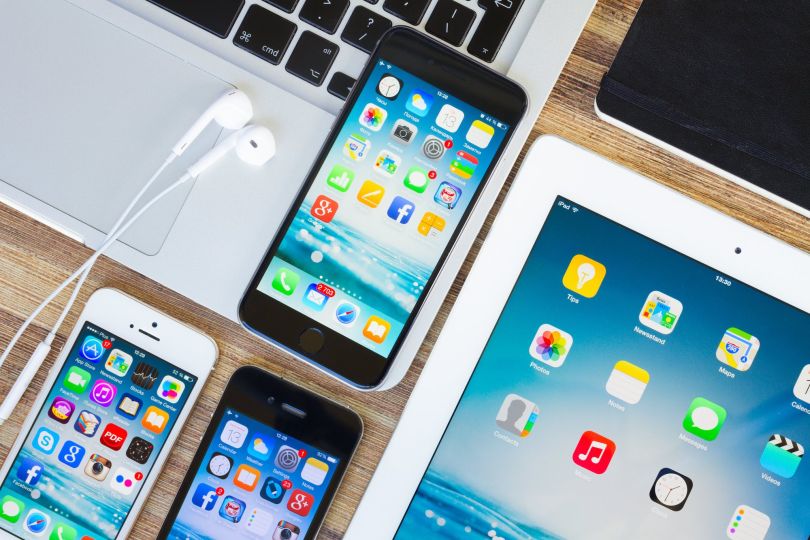In February, before the first case of COVID-19 community spread in the United States was documented, the World Health Organization convened a meeting with a few prominent tech companies at Facebook’s headquarters in Menlo Park. Companies including Amazon, Google and Twitter met to discuss how to slow the spread of misinformation about COVID-19.
As an estimated 1.5 billion people around the world are under orders to shelter in place, and as people are increasingly conducting all aspects of their lives online, tech companies are in a unique position of influence and responsibility, whether it’s to combat misinformation, to offer discounted or free services, or to give help to frontline workers.
Preventing the spread of misinformation
Some of the companies at the WHO meeting had been starting to take action already. Back in January, Twitter announced that links to official information sources — such as the WHO and Centers for Disease Control and Prevention — would be prominently displayed above any search results relating to coronavirus. On its blog, Twitter wrote that this change was part of its effort to prevent disinformation on the subject, and “to ensure that when you come to the service for information about the #coronavirus, you’re met with credible, authoritative information first.”
Wikipedia, as many people’s first stop for information on the internet, also plays an important part in preventing the spread of false information on COVID-19. Its team of editors pay special attention to pages relating to medicine, holding them up to a higher standard of scrutiny and often only accepting citations from peer-reviewed medical journals, according to Wired.

Helping companies transition to remote work
Aside from preventing the spread of misinformation, tech companies are working in other ways to help mitigate the secondary effects of the epidemic. Streaming services have started to reduce video quality to standard definition in an effort to maintain overall internet access as more people are streaming movies, playing online games and using videoconferencing.
Other companies are helping organizations move their workforces to working remotely. Zoom, a big player in videoconferencing, made its tool free with unlimited use to K-12 schools. And efforts like these aren’t limited to large companies.
Addigy Technology is a startup that handles support for companies that use Apple devices, with offices in Miami, Minneapolis and Portland. Its product is a tool that is downloaded onto the client company’s devices, allowing the client’s IT department to track those devices, push software downloads and give users access to a self-service page where they can request tech support or download company-approved software.
“It gives them a sense of accomplishment that we can help people out.”
A week ago, Addigy announced it would provide its services free of charge for 60 days to new clients. Jason Dettbarn, founder and CEO of Addigy, said the company has since seen requests from a range of organizations seeking help with their transitions, from school districts to airports.
“Our team is very motivated,” he said. “It gives them a sense of accomplishment that we can help people out. There’s a lot of work, but that’s a good thing right now and everybody is pretty motivated to help.”
Dettbarn said giving IT admins the ability to push software and updates to remote users’ devices helps prevent security vulnerabilities that can occur during a hurried transition to remote work, especially for companies rushing to get laptops into the hands of employees who suddenly need them.
“That just eliminates a lot of problems that the end user might create. That’s how ransomware typically starts,” Dettbarn said, referring to the type of cybersecurity attack that renders a user’s files unusable by encryption, which is usually initiated by clicking on links in phishing emails or visiting infected websites.
Companies that choose to continue using the service would have to pay once the 60 days is up, but Dettbarn said that, for now, Addigy is concentrating on helping companies be successful switching to remote work. “In the future that might turn into opportunities, but for now, just focus strictly on helping organizations make that transition at no cost.”
Taking steps to protect workers’ health
Few industries have gotten as much attention as a result of the epidemic as food and goods delivery services. Major industry players have faced pressure both from their workers and the public to enact safer procedures that would protect workers, customers and the wider community while more people use their services.
Companies were quick to implement no-contact delivery, and a few also instituted two weeks of paid sick leave for employees who tested positive for the virus or have been ordered to quarantine. But delivery and warehouse workers argue that the eligibility requirements for taking sick leave may be too strict, as they do not cover an assortment of other related conditions, such as caring for a sick family member, caring for children who are home due to school closings, or simply sick employees lacking access to a doctor or to COVID-19 tests.
Helping restaurants keep the lights on
Food delivery services have also tried to help out restaurants, which have rapidly seen losses of customers and revenue as more people follow shelter-in-place guidelines.
Up to a few weeks ago, restaurants were charged fees whenever customers placed pickup or delivery orders through Chowbus, a Chicago-based food delivery service specializing in East Asian cuisine. Recently, the company decided to waive its commission on pickup orders for the foreseeable future.
“It’s a different percentage by restaurant,” said Allan Chow, vice president of engineering at Chowbus (no relation), regarding how pickup fees work. “But we waived all of it, and we’re only charging credit card fees.”
The move is on par with the likes of DoorDash, which has waived pickup commissions for existing restaurant partners and all commissions for new restaurant partners, and UberEats, which has waived fees for deliveries.
Chowbus has been handing out hand sanitizer, and in some cases masks and gloves, to its delivery drivers. Many food delivery services have also instituted paid sick leave for delivery workers impacted by COVID-19. Instacart leads the pack on this front, giving in-store shoppers the ability to accrue paid sick leave backdated to the beginning of the year.
“What we really think will help them succeed is being willing to deliver whatever they’re willing to sell.”
Chowbus has looked for other ways it can help the restaurants it partners with. “Some of us are really passionate about each restaurant,” Chow said. “Some of our salespeople [will call the restaurant] and say, ‘Dude, you should sell your dumplings frozen, don’t even bother selling them as potstickers, because people just want to buy a lot and you could save money and effort.’”
The enthusiasm employees at Chowbus feel for their partner restaurants and the food comes through in the way Chow talks about the dishes and quizzes me about which restaurants I like the best. When restaurants make changes to their menus as a result of the epidemic, Chowbus employees work with them to create a corresponding presentation on the app with appealing photos. “What we really think will help them succeed is being willing to deliver whatever they’re willing to sell,” Chow said.
Chowbus has seen an increase in the number of orders within the past couple of weeks. “It’s actually gone up a lot,” Chow said. “People are ordering deliveries throughout the day.”
“In terms of the tech community, I think we’re pretty privileged in terms of, you know, we have the option to work from home,” Chow said. “And so really just keep in mind how much this has impacted all those who don’t have that privilege, and see whatever you can do to support them any way you can. But probably the most direct way is to order pickup at your local restaurant.”




